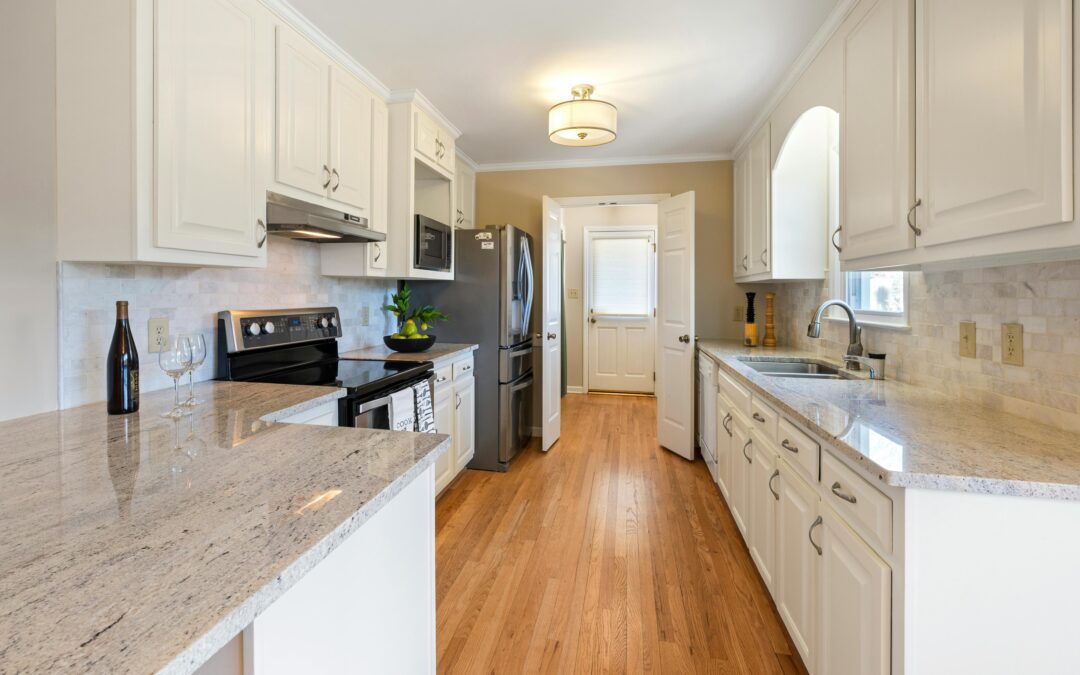Countertops serve as a primary workspace, handling everything from meal prep to family gatherings. Beyond their practicality, they also bring texture, color, and character to the heart of the home, setting the tone for the overall aesthetic. Each material offers unique benefits, with options ranging from durable quartz to the timeless beauty of natural stone and the warmth of wood. Finding the perfect fit, however, can be a challenge.
Let’s explore the key factors that will help you select the ideal countertops to upgrade your kitchen design while meeting your practical needs.
Consider Your Kitchen Style
Whether aiming for a modern, traditional, or rustic look, the right countertop can improve your design. For contemporary kitchens, sleek materials like quartz or polished granite work well. In contrast, a farmhouse-style kitchen may benefit from warm wood or textured stone.
Also, you can note the countertop’s finish and edge profile aligns with your cabinetry and fixtures to maintain a cohesive look throughout the space.
Explore Material Options
Numerous materials are available for kitchen countertops, each with specific advantages. Quartz, known for its durability and low maintenance, comes in various colors and patterns. Granite offers natural beauty with unique veining, while marble brings elegance and sophistication.
For those seeking warmth, butcher block provides a soft, inviting touch. An industrial feel is introduced by concrete, while stainless steel blends contemporary style with functionality.
Consider Durability
Since kitchens are high-traffic areas, countertops must withstand daily use. Materials like quartz and stone resist scratches and heat, making them suitable for cooking and food preparation. However, softer materials like marble may require more care to avoid etching and staining.
It is important to assess how each option will tolerate various kitchen activities, including chopping, baking, and entertaining.
Evaluate Maintenance Requirements
Selecting a countertop that aligns with your maintenance preferences can increase your kitchen experience and maintain its beauty for years. Some options, like quartz, require minimal upkeep due to their non-porous surface, while others, like natural stone, may need regular sealing to prevent stains and damage.
In order to preserve their appearance and keep them from drying out, wood countertops frequently need to be oiled. Additionally, consider how much time and effort you are willing to invest in upkeep.
Choose the Right Color and Texture
While lighter hues can create an airy, spacious feel, darker shades add drama and sophistication. Deepness and visual interest can be achieved with textured finishes. Think about how the chosen color complements cabinetry, flooring, and accessories. Harmonizing colors and textures contributes to a unified design.
Experimenting with samples in your kitchen can help in visualizing how different options will blend with existing elements.
Assess Weight and Thickness
The weight and thickness of countertops can impact installation and support requirements. Heavier materials like granite and concrete may need additional structural support, while lighter options like laminate can be installed without reinforcing cabinetry.
Depth also influences the countertop’s visual presence. Thinner slabs can appear sleek and streamlined, whereas thicker slabs can project a bold and dramatic appearance.
Are you ready to transform your kitchen with the ideal countertops? At RSC Building, our professionals will help you select and install the perfect countertop material to boost your kitchen’s functionality and style. Contact us today for a consultation and let us bring your dream kitchen to life.

